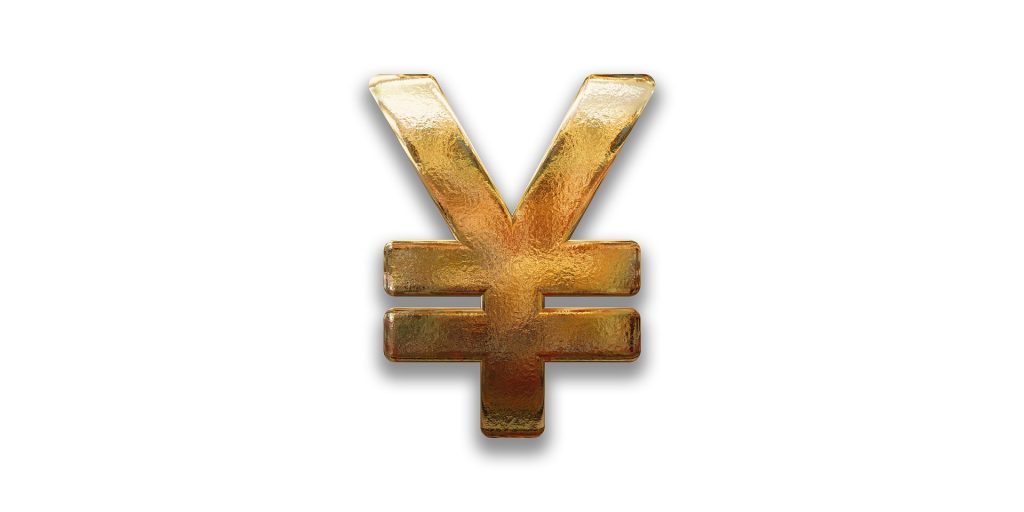What’s new: Relative to the U.S. dollar, the Japanese yen has recently slipped to its lowest level since 2015, making imports more expensive for the Japanese people and fueling inflation in Japan. During the first quarter of 2022, only the rubble fell further against the greenback.
Why it matters: The recent decline in the value of the Japanese yen seems to defy logic or, at the very least, seems to be at odds with conventional wisdom. After all, the yen has long played the role of the penultimate financial “safe haven” currency, especially in times of extreme turmoil such during war or a global pandemic like Covid-19.
The big questions: Why has the JPY/USD foreign exchange rate continued to plummet? Are the factors that are driving this trend likely to continue much longer? What does this mean for the average citizen of Japan?
- Economists point the blame on the Bank of Japan’s ongoing policy of promoting ultra-low short-term interest rates, which bucks the trend among other central banks in G-7 countries such as the U.S. Federal Reserve, the European Central Bank, and the Bank of England to increase interest rates to keep inflation in check.
- The underlying problem is, however, the fact that Japan is a resource-poor country. As a result, Japan must import a relatively high percentage of its food and energy. The prices of such commodities have been spiking due to the global supply disruption caused by the ongoing global pandemic and more recently by the war in Ukraine. Japan’s current-account trade deficit has subsequently increased to near-record levels.
- These developments do not bode well for the average Japanese household, which, after almost 2 decades of almost no inflation, has just recently been struggling to absorb the effects of inflation across a wide range of everyday products and services—beginning with a dramatic increase in the price of gasoline. This is against the backdrop of stagnant wages. See “The Average Japanese Salary Sinks Even Lower” for more details.
The recent trends driving the value of the yen lower seem to fly in the face of conventional wisdom. For decades the thinking was that banks would opt to load up on the yen in times of emergency, because of Japan’s status as the world’s largest net creditor nation.
- For quite some time now, Japan’s current account surpluses have been mainly due to capital flows from foreign asset holdings, rather than the export power of Japanese firms, as is often pointed out.
- Japan’s trade balance has been in deficit for some time now due to the rising cost of energy imports, with the February deficit ballooning to a record 1.03 trillion yen (approximately US $8.3 billion) on a seasonally adjusted basis.
Between the lines: Some believe, however, that there could be a silver lining at the end of the tunnel for Japan.
- Jun Ishikane, the chief strategist at Mitsubishi UFJ International Asset Management, said, “The yen’s positioning as a safe asset has basically not changed much. Japan has the world’s largest net foreign assets.”
- Thus, a weaker yen could eventually lead to increased exports, which has been the traditional Japanese approach toward building national wealth since the 1960s.
What’s next: In the short term, it is likely that the yen will continue to trade at the current low end of a long-term range of foreign exchange rates. In the long term, other currencies, such as the Chinese yuan, may replace the yen to become the new “safe haven” of Asian currencies.
- Bank of Japan Governor Haruhiko Kuroda this week made clear his determination to keep the yield on the 10-year Treasury note at its manipulation target of around zero percent. Thus, short-term interest rates are, most likely, not going to go up at any point soon, continuing to buck the trend led by other major central banks.
- Frederick Newman, co-head of Asian economic research at HSBC Holdings, said, “This is a sign that doubts about Japan’s currency are now much more deeply rooted, and that it is not a safe haven. This suggests that it is losing its appeal as a destination and giving way to alternative currencies.”
The big picture: Even if it is possible for individuals to attempt to hedge against the value of a particular currency like the yen from falling by holding cash or other financial assets in another currency like the U.S. dollar, attempts to time the market often fail.
- Foreign exchange rates tend to ebb and flow over the long term. It is notoriously difficult to predict their movement.
- Having lived in Japan when the exchange rate was as high as 80 JPY/USD, one simply learns to make adjustments and do without expensive imports to the greatest extent possible. That is, however, easier said than done in the case of certain commodities like gasoline.
- Given the extraordinary value of Japan’s overseas assets, it is definitely premature to assume that the yen will be undervalued indefinitely into the future.
Link to Japanese Source: https://toyokeizai.net/articles/-/578916
More Stories from Japan Insider






